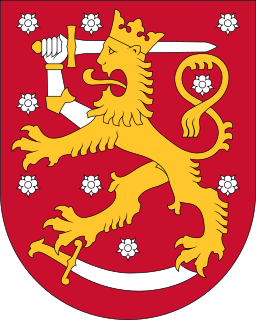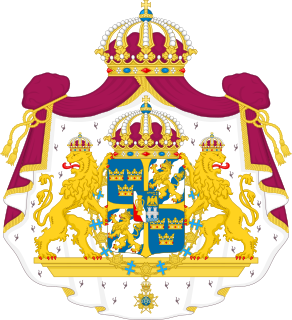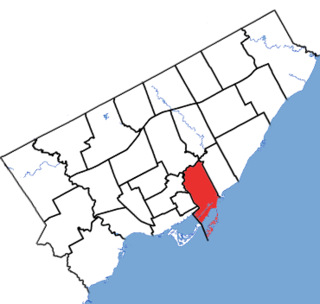
Naturalization is the legal act or process by which a non-citizen in a country may acquire citizenship or nationality of that country. It may be done automatically by a statute, i.e., without any effort on the part of the individual, or it may involve an application or a motion and approval by legal authorities. The rules of naturalization vary from country to country but typically include a promise to obeying and upholding that country's laws, taking and subscribing to the oath of allegiance, and may specify other requirements such as a minimum legal residency and adequate knowledge of the national dominant language or culture. To counter multiple citizenship, most countries require that applicants for naturalization renounce any other citizenship that they currently hold, but whether this renunciation actually causes loss of original citizenship, as seen by the host country and by the original country, will depend on the laws of the countries involved.

Permanent residency in Canada is a status granting someone who is not a Canadian citizen the right to live and work in Canada without any time limit on their stay. To become a permanent resident a foreign national must apply to Immigration, Refugees and Citizenship Canada (IRCC), formerly known as Citizenship and Immigration Canada, under one of several programs.

Canadian nationality law is promulgated by the Citizenship Act since 1977. The Act determines who is, or is eligible to be, a citizen of Canada. The Act replaced the previous Canadian Citizenship Act in 1977 and has gone through four significant amendments, in 2007, 2009, 2015 and 2017.
In the Parliament of Australia, a casual vacancy arises when a member of either the Senate or the House of Representatives:

The issue of voting rights in the United States, specifically the enfranchisement and disenfranchisement of different groups, has been contested throughout United States history.

Elections in Mexico determine who, on the national level, takes the position of the head of state – the president – as well as the legislature.
Age of candidacy is the minimum age at which a person can legally qualify to hold certain elected government offices. In many cases, it also determines the age at which a person may be eligible to stand for an election or be granted ballot access.

Permanent residency is a person's resident status in a country of which they are not citizens. This is usually for a permanent period; a person with such status is known as a permanent resident. In the United States, such a person is officially referred to as a Lawful Permanent Resident (LPR).

Elections in Jersey take place for the Assembly of the States of Jersey and at parish-level. Various parties have been formed over the years in Jersey, but few candidates stand for election affiliated to any political party. All elections in Jersey use the First-past-the-post voting system. In 2008, the voting age was reduced to 16 years.
The right of abode is an individual's freedom from immigration control in a particular country. A person who has the right of abode in a country does not need permission from the government to enter the country and can live and work there without restriction.

Swiss citizenship is the status of being a citizen of Switzerland and it can be obtained by birth or naturalisation.

New Zealand nationality law determines who is and who is not a New Zealand citizen. The status of New Zealand citizenship was created on 1 January 1949 by the British Nationality and New Zealand Citizenship Act 1948. Prior to this date, New Zealanders were only British subjects and New Zealand had the same nationality legislation as the United Kingdom and other Commonwealth countries.

Citizenship of Finland can be obtained on the basis of birth, marriage of parents, adoption, or the place of birth. In addition, it may be acquired by application or by declaration to authorities. Finnish citizenship acquisition is based primarily on the legal principle of jus sanguinis. However, for many practical purposes, the concepts of municipal domicile and domicile in Finland are as important to the relation between the individual and the Finnish authorities as the individual's citizenship status.

Swedish nationality law determines entitlement to Swedish citizenship. Citizenship of Sweden is based primarily on the principle of jus sanguinis. In other words, citizenship is conferred primarily by birth to a Swedish parent, irrespective of place of birth.

Icelandic nationality law is based upon the principles of jus sanguinis. In other words, descent from an Icelandic parent is the primary method of acquiring Icelandic citizenship. Birth in Iceland to foreign parents does not in itself grant Icelandic citizenship.
In most countries, suffrage, the right to vote, is generally limited to citizens of the country. Some countries, however, extend voting rights to resident non-citizens. Such voting rights extended to non-citizens are often restricted or limited in some ways, with the details of the restrictions or limitations varying from one country to another. Voting rights to non-citizens may or may not extend to a right to run for an elected or other public office.

Armenian nationality law is based primarily on the principle of jus sanguinis. It was adopted on November 6, 1995 and was amended in 2007 which permitted dual citizenship.
A resident register is a government database which contains information on the current residence of persons. In countries where registration of residence is compulsory, the current place of residence must be reported to the registration office or the police within a few days after establishing a new residence. In some countries, residence information may be obtained indirectly from voter registers or registers of driver licenses. Besides a formal resident registers or population registers, residence information needs to be disclosed in many situations, such as voter registration, passport application, and updated in relation to drivers licences, motor vehicle registration, and many other purposes. The permanent place of residence is a common criterion for taxation including the assessment of a person's income tax.
Andrew Martin is an American politician and certified public accountant who has served as the Clark County Democratic Party Chair, as a Member of the Nevada State Economic Forum, a Member of the Clark County School District Bond Oversight Committee, and as a member of the Nevada Assembly. He is a member of the Democratic Party.


















